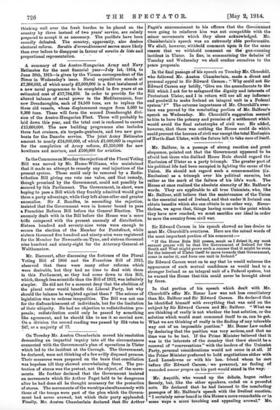Mr. Harcourt, after discussing the fortunes of the Plural Voting
Bill of 1906 and the Franchise Bill of 1912, observed that there were many other reforms which were desirable, but they had no time to deal with them in this Parliament, so they had come down to this Bill, which, though less scientific than the Bill of 1912, was infinitely simpler. He did not for a moment deny that the abolition of the plural voter would benefit the Liberal Party, but why should the balance be weighted against them P The science of legislation was to redress inequalities. The Bill was not one for the disfranchisement of individuals, but for the limitation of their ubiquity. He had no objection to redistribution pro- posals; redistribution could only be passed by something like agreement, and he should like to see it so carried now. On a division the second reading was passed by 324 votes to 247, or a majority of 77.














































 Previous page
Previous page